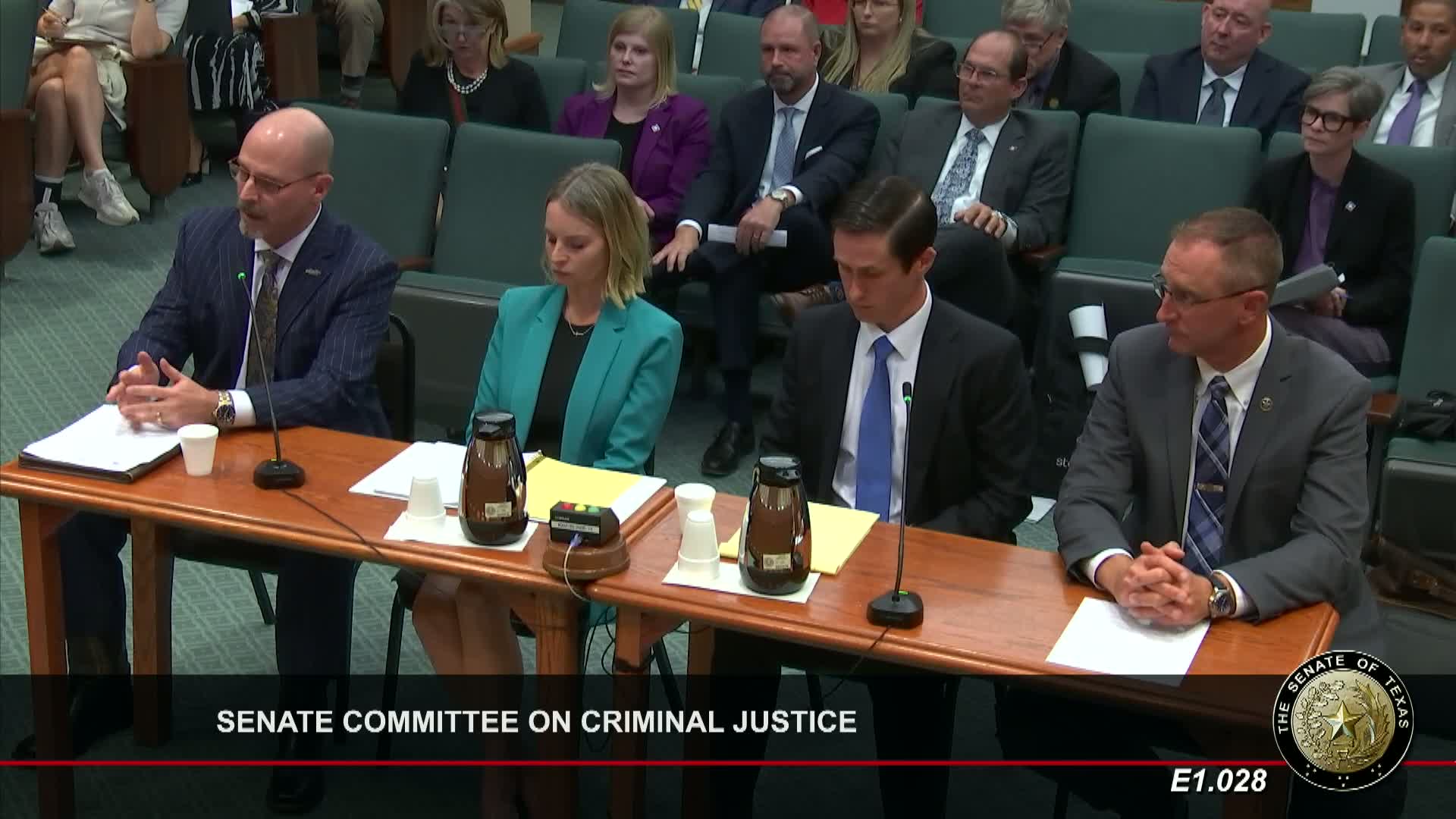Crackdown on Organized Fuel Theft Uncovers International Crime Network
October 10, 2024 | Committee on Criminal Justice, Senate, Legislative, Texas
This article was created by AI summarizing key points discussed. AI makes mistakes, so for full details and context, please refer to the video of the full meeting. Please report any errors so we can fix them. Report an error »

In a recent meeting of the Texas Senate Committee on Criminal Justice, members gathered to address the alarming rise of organized crime, particularly focusing on fuel theft and credit card fraud. The atmosphere was charged with urgency as officials shared insights into the complex web of criminal activities that extend beyond mere theft, implicating international networks and local communities alike.
One of the most striking cases discussed involved a Chilean fraud operation utilizing mobile point-of-sale terminals to execute fraudulent transactions across the United States. These devices, manufactured in South America, were reportedly used to swipe stolen credit cards, generating fictitious transactions that funneled money back to processors in Argentina. The committee learned that authorities had identified 51 similar devices within the U.S., although their exact locations remained undisclosed.
The conversation quickly shifted to the broader implications of these crimes, with committee members expressing concerns about the involvement of organized crime groups, including potential links to Chinese criminal organizations. While hard evidence was lacking, the testimonies suggested a troubling connection between these groups and the Chinese government, raising questions about the extent of their operations.
As the discussion unfolded, the committee also examined the issue of organized fuel theft, which has been described as a "victimless crime" by some. However, officials emphasized the far-reaching consequences of such thefts, noting that stolen fuel is often used to finance other criminal activities, including drug trafficking and human smuggling. The committee highlighted the need for legislative action, specifically referencing Senate Bill 467, which aims to combat organized fuel theft. Although the bill was vetoed previously, there is a strong push to revive it, with committee members expressing their commitment to tackling this pervasive issue.
The meeting underscored the importance of collaboration between law enforcement and private industry. Officials stressed the need for businesses to share data and intelligence to combat these crimes effectively. As one member noted, "We're here to help," emphasizing a proactive approach to crime prevention rather than punitive measures.
As the session concluded, the committee members left with a renewed sense of purpose, recognizing that the fight against organized crime requires not only legislative action but also a united front from all sectors of society. The discussions highlighted the intricate connections between various forms of crime and the urgent need for comprehensive strategies to address them, leaving attendees pondering the future of public safety in Texas.
One of the most striking cases discussed involved a Chilean fraud operation utilizing mobile point-of-sale terminals to execute fraudulent transactions across the United States. These devices, manufactured in South America, were reportedly used to swipe stolen credit cards, generating fictitious transactions that funneled money back to processors in Argentina. The committee learned that authorities had identified 51 similar devices within the U.S., although their exact locations remained undisclosed.
The conversation quickly shifted to the broader implications of these crimes, with committee members expressing concerns about the involvement of organized crime groups, including potential links to Chinese criminal organizations. While hard evidence was lacking, the testimonies suggested a troubling connection between these groups and the Chinese government, raising questions about the extent of their operations.
As the discussion unfolded, the committee also examined the issue of organized fuel theft, which has been described as a "victimless crime" by some. However, officials emphasized the far-reaching consequences of such thefts, noting that stolen fuel is often used to finance other criminal activities, including drug trafficking and human smuggling. The committee highlighted the need for legislative action, specifically referencing Senate Bill 467, which aims to combat organized fuel theft. Although the bill was vetoed previously, there is a strong push to revive it, with committee members expressing their commitment to tackling this pervasive issue.
The meeting underscored the importance of collaboration between law enforcement and private industry. Officials stressed the need for businesses to share data and intelligence to combat these crimes effectively. As one member noted, "We're here to help," emphasizing a proactive approach to crime prevention rather than punitive measures.
As the session concluded, the committee members left with a renewed sense of purpose, recognizing that the fight against organized crime requires not only legislative action but also a united front from all sectors of society. The discussions highlighted the intricate connections between various forms of crime and the urgent need for comprehensive strategies to address them, leaving attendees pondering the future of public safety in Texas.
View full meeting
This article is based on a recent meeting—watch the full video and explore the complete transcript for deeper insights into the discussion.
View full meeting
